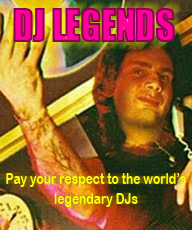Getting to know frequency, phase cancellation and making my music sound better.
Home :: Producer tips and DAW information :: Getting to know frequency, phase cancellation and making my music sound better.Reply
Getting to know frequency, phase cancellation and making my music sound better. Posted on: 18.05.2012 by Marlyn Benedick Now, this is a really tricky one (or it might not be). I've been making electronic music since roughly 1997, so I would of been 13-14 years of age. If you do the math then you'll understand that I'm now a lot older and wiser and have had a few releases under my belt. Even so, my music STILL doesn't sound the way I want it to. The only thing I can put it down to is basically having Phase and Frequency issues in my songs. This might sound like a strange question but... How do you determine if two sounds (whether it's bass and kick or lead synth and percussion, whatever...) clash and what frequencies are getting used up to try and EQ so they go together? I've been using a spectrum analyser for the past few month which clears up some issues...but, how do I accurately measure which frequency a specific sound is in? I've read a lot of artists saying that they like to go through the frequency range and fill out the track as much as possible by using up each frequency? I don't really know how to get round this and was wondering if someone out there either knows a) what I mean and b) how they listen for, where they listen for it in a track and obviously what they listen for? I hope this makes sense. I believe that if I can brush up on this sort of area then my tracks will sound better when they get mastered and not just sound like the same shit song but louder. I appreciate it a lot if anyone has read this far. You've done me proud if you have. Thanks, Alan | |
| Marlyn Benedick 18.05.2012 | Now, this is a really tricky one (or it might not be). I've been making electronic music since roughly 1997, so I would of been 13-14 years of age. If you do the math then you'll understand that I'm now a lot older and wiser and have had a few releases under my belt. Even so, my music STILL doesn't sound the way I want it to. The only thing I can put it down to is basically having Phase and Frequency issues in my songs. This might sound like a strange question but... How do you determine if two sounds (whether it's bass and kick or lead synth and percussion, whatever...) clash and what frequencies are getting used up to try and EQ so they go together? I've been using a spectrum analyser for the past few month which clears up some issues...but, how do I accurately measure which frequency a specific sound is in? I've read a lot of artists saying that they like to go through the frequency range and fill out the track as much as possible by using up each frequency? I don't really know how to get round this and was wondering if someone out there either knows a) what I mean and b) how they listen for, where they listen for it in a track and obviously what they listen for? I hope this makes sense. I believe that if I can brush up on this sort of area then my tracks will sound better when they get mastered and not just sound like the same shit song but louder. I appreciate it a lot if anyone has read this far. You've done me proud if you have. Thanks, Alan |
| Marlyn Benedick 17.05.2012 | Thanks, had a play about with it over the last couple of hours. I know exactly what you're talking about. Will report back if I have anymore quandaries. Thanks Again! |
| Georgina Schatzman 17.05.2012 | Seems like you're talking about masking, and that's when a sound with a certain frequency range covers up another sound in the same range, i.e. kick and bass for example. Spectrum analyzer works, but a lot of it comes do to using your ears and EQing. Find the two tracks that are conflicting for example, and us an EQ with a high Q, turn it up and sweep it across until you find the "sweet" spot, the spot where the actual sound and character is. That's the frequency you're gonna want to carve out of the other track to try and get them to sit nicely together. But a lot of this can be avoided in the writing stage. For example, if you have a real subby bass, do you need to use a subby kick then? And in the arrangement as well this can be partially taken care of. |
<< Back to Producer tips and DAW informationReply



